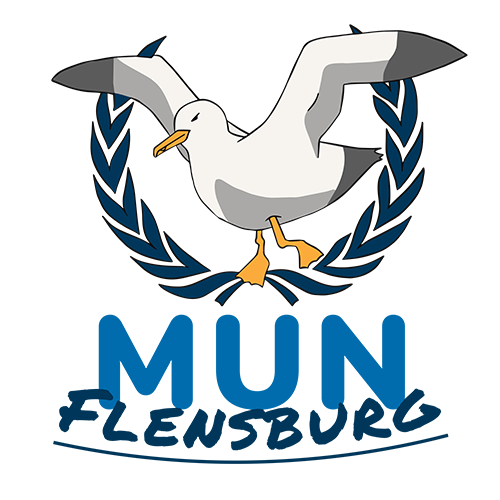Model United Nations
Flensburg
Model United Nations
Flensburg
Committees and Topics
Here, you’ll find all information about the different committees and their respective topics.
Committee Description
“UNESCO is the United Nations Educational, Scientific and Cultural Organization. It contributes to peace and security by promoting international cooperation in education, sciences, culture, communication and information. UNESCO promotes knowledge sharing and the free flow of ideas to accelerate mutual understanding and a more perfect knowledge of each other’s lives. UNESCO’s programmes contribute to the achievement of the Sustainable Development Goals defined in the 2030 Agenda, adopted by the UN General Assembly in 2015.” (Source: https://www.unesco.org/en/brief)
The following topics will be discussed in the UNESCO Council at our conference
- Possibilities of remote education
The UN’s fourth SDG, Quality Education, currently deals with education related problems. Promoting life learning opportunities, and inclusive and equitable quality education is the main concern. Taking these points into consideration and the current state of global situations, demand for remote education is growing and, most importantly, realizing its potential may be the key to get one step closer to the 4th SDG aim.
- Balancing the representation of countries in the world heritage
The World Heritage List was created in 1978 to identify and protect exceptional sites. However, there’s still much work to be done, as the list only includes sites from 177 countries and there’s an imbalance in the types of properties and geographic areas. Addressing this issue requires respecting the unique narratives of local and indigenous communities and protecting their cultural histories and rights. By doing so, we can get closer to the 16th SDG “Peace, Justice and Strong Institutions”.
The study guide for all delegates in the UNESCO can be found here.
Committee Description
“The Economic and Social Council is at the heart of the United Nations system to advance the three dimensions of sustainable development – economic, social and environmental. It is the central platform for fostering debate and innovative thinking, forging consensus on ways forward, and coordinating efforts to achieve internationally agreed goals.” (Source: https://www.un.org/ecosoc/en/content/about-us)
The following topics will be discussed in the Economic and Social Council at our
- Creating resilient and sustainable cities
This topic directly relates to SDG 11th: “Make cities and human settlements inclusive, safe, resilient and sustainable”. It has many sub-targets that address issues like housing, transport, participation, disaster risk management and waste disposal among others. This SDG has all the more importance as today around half of the world population lives in cities, an amount that is expected to rise to 68% in 2050. Working on SDG11 and improving the life quality of the urban population also entails progress on many other SDGs.
- Reducing income inequality in the world
Every year the level of inequality in the world is growing. Even though some positive development trends could be noticed until 2020, the coronavirus pandemic, the economic crisis and the worldwide inflation have made inequality one of the most urgent problems of our current life. The 10th goal of the Sustainable Development Goal is to reduce inequalities within and between countries.
Reducing income inequality requires continued commitment from all stakeholders, and it will likely take time to see significant progress. However, the benefits of reducing income inequality will be improved social cohesion and economic stability.
The study guide for all delegates in the ECOSO Council can be found here.
